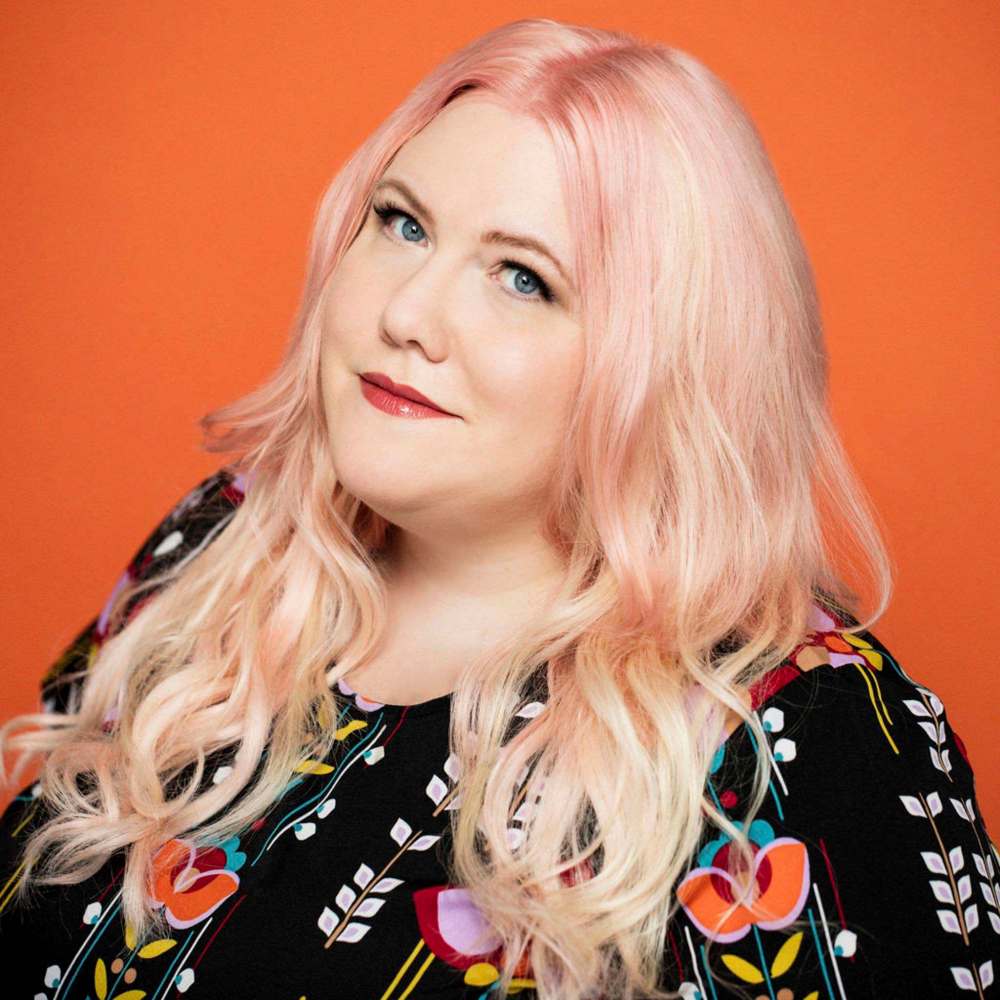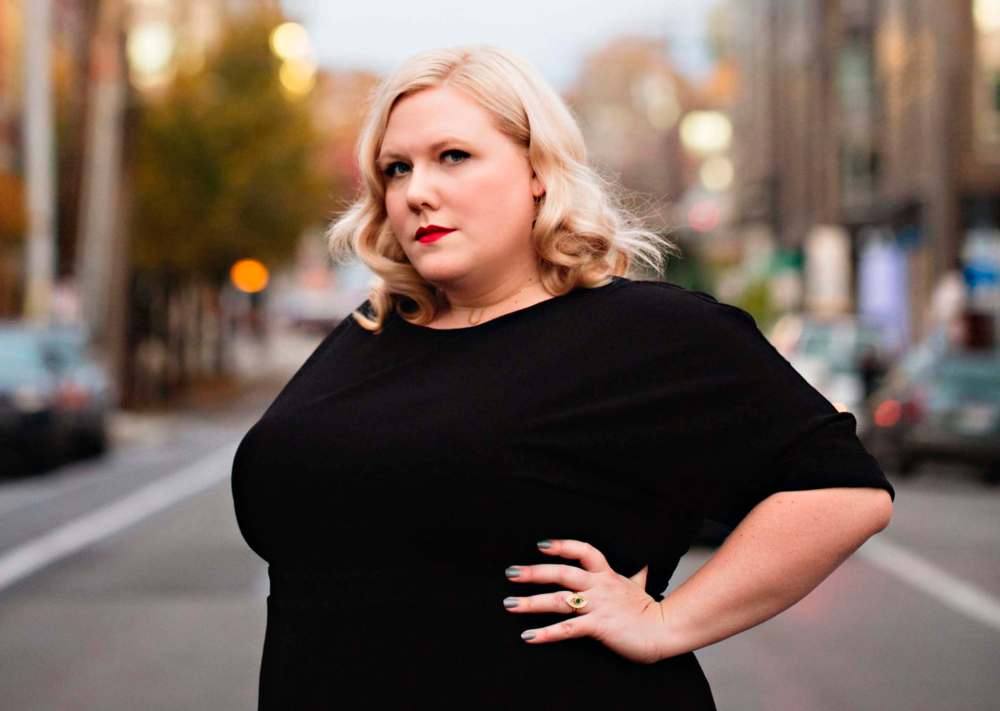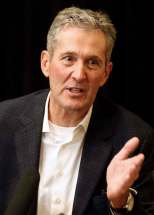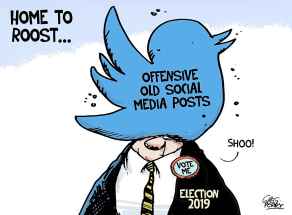Loud and proud Shrill author -- an outspoken activist on reproductive issues and fat acceptance -- to speak in city in support of Women's Health Clinic
Read this article for free:
or
Already have an account? Log in here »
To continue reading, please subscribe:
Monthly Digital Subscription
$0 for the first 4 weeks*
- Enjoy unlimited reading on winnipegfreepress.com
- Read the E-Edition, our digital replica newspaper
- Access News Break, our award-winning app
- Play interactive puzzles
*No charge for 4 weeks then price increases to the regular rate of $19.00 plus GST every four weeks. Offer available to new and qualified returning subscribers only. Cancel any time.
Monthly Digital Subscription
$4.75/week*
- Enjoy unlimited reading on winnipegfreepress.com
- Read the E-Edition, our digital replica newspaper
- Access News Break, our award-winning app
- Play interactive puzzles
*Billed as $19 plus GST every four weeks. Cancel any time.
To continue reading, please subscribe:
Add Free Press access to your Brandon Sun subscription for only an additional
$1 for the first 4 weeks*
*Your next subscription payment will increase by $1.00 and you will be charged $16.99 plus GST for four weeks. After four weeks, your payment will increase to $23.99 plus GST every four weeks.
Read unlimited articles for free today:
or
Already have an account? Log in here »
Hey there, time traveller!
This article was published 18/09/2019 (2276 days ago), so information in it may no longer be current.
When Lindy West speaks, people listen.
EVENT PREVIEW
An Evening With Lindy West
● Sept. 20, 7 p.m.
● Knox United Church
● Tickets are $35 (general admission), $25 (student/limted income), $100 (admission/post-event reception) at eventbrite.ca or at the door
The American writer and activist has been a conversation leader on everything from abortion to fat acceptance to internet trolling. And now, West will make her Winnipeg debut this week, speaking at Knox United Church at 7 p.m. on Sept. 20 in support of Women’s Health Clinic. Tickets are $35 at eventbrite.ca and the door, with all proceeds going to WHC.
“Lindy West was an obvious choice for us,” says Nadine Sookermany, executive director of Women’s Health Clinic. “She has been integral in advocating for feminist issues that align with our values, such as reproductive justice, including abortion and fat acceptance. We are so grateful that she agreed to come here to support us, despite her busy schedule.”
West believes it’s important to make the time.

“I’m always really excited to come talk to women’s health and reproductive health clinics and organizations because I think it’s such a — I don’t know about Canada, but at least in America — it’s such a slog to move forward and do the work against the tide of people who, in bad faith, want to derail you and call you a monster, or a murderer, or a bad person for doing something that’s such a beautiful and pure form of care,” says West, over the phone from her home in Seattle. (In addition to all the writing she’s done on the subject of reproductive justice, she’s the co-founder of #ShoutYourAbortion, a campaign aimed at reducing stigma.)
“That contrast, the beauty of the work itself and the way care providers are demonized for doing it, is so jarring and exhausting. I hope to talk about these issues in a way that’s funny and hopeful and galvanizing.”
West, 37, has built a career on talking about issues that matter in a way that’s funny, hopeful and galvanizing, whether it’s in her capacity as a New York Times contributing opinion writer or, more recently, as the executive producer and writer on her television show.
Based on her bestselling 2016 memoir of the same name, Shrill stars Aidy Bryant (Saturday Night Live) as Annie, “an overweight young woman who wants to change her life — but not her body.” Like the book that inspired it, the half-hour comedy is both poignant and hilarious and, upon its debut on Hulu/Crave in March, was heralded as groundbreaking. Here, finally, was a show featuring a fat woman with a full life who is not actively striving to be thinner. Women who had never seen bodies that look like theirs on TV could now see themselves in Annie.
https://youtu.be/JyUr_-jxWZA
“It was really so validating,” West says of the response to the show. “It’s what I was trying to do with Shrill, the book, which is just humanize a fat person and make it funny and make it interesting and dynamic and complex the way our real lives are, and make you like her. To do that visually on screen and to know it was hopefully helping other fat women and fat people on that same journey that I did in my 20s with the help of fat people who made themselves visible before me. What’s better than that? To hear from people that it worked is so special to me.”
The goal, West says, was to tell a good story, and make something funny and human. “If we can do all that and also provide this really profound personal and political service? That’s the ultimate form of this kind of work.”
Shooting just wrapped on the second season of Shrill in Portland, Ore. — “It’s so good,” West says, “I’m so excited for people to see it.” Now, West is gearing up for the November release of The Witches Are Coming, a collection of essays on politics and pop culture, suffused with her signature sense of humour. “I don’t have any coping mechanisms other than humour,” she says.
West was thinking about how often the term “witch hunt” is deployed when a powerful man is accused of something bad, particularly during the height of the #MeToo movement.
“I started thinking about that term and how backwards it is to use it against victimized women,” she says. “And I started to think about how much our modern society is addicted to living in a fantasy and not confronting the truth, and not reckoning with the reality of how we treat each other and the absolutely violent systems we’ve built that keep certain people in power and in wealth, and certain people disempowered and in poverty. There are so many broken parts, not just to America, but the world. It’s a book about the power of telling the truth, and the power of collective action.”
West points to #MeToo as an example.
“There were individual accusations against plenty of these men who have now fallen, or whatever you want to call it, that were dismissed,” she says. “You can dismiss an allegation when it’s one accuser — historically you could at least — but once it’s 30 people, something turns. That’s a lesson we can take beyond #MeToo. If you can get a critical mass of people to tell the truth, that’s how we start taking meaningful action on climate change. That’s how we start mitigating the legacy of racism in North America. We want to live in these comfortable fantasies and convince ourselves that we’re not bad and have done nothing wrong and that we’re gonna be OK. The reality is we’re not gonna be OK unless we tell the truth and reckon with the fact that a lot of people have done a lot of bad things, and a lot of us benefit.”

There are people in the world who would prefer if West didn’t speak out and tell the truth. As someone who frequently wrote (and still writes) viral opinion pieces, West found herself on the receiving end of violent, misogynistic vitriol spewed by trolls trying to silence her — particularly during her time as a staff writer at the irreverent feminist blog Jezebel. But she never backed down. In 2015, she confronted her worst troll, a man who harassed her by impersonating her dead father and ended up apologizing to her on a landmark episode of This American Life (it’s worth a listen).
In 2017, she left Twitter, no longer wanting to give her time and labour to a site that refused to deal with its troll problem in a meaningful way. She hasn’t looked back.
“I love it,” she says with a laugh of being off the platform. “I found Twitter to be such a time suck and energy suck. I woke up every day feeling anxious. What’s going to be in my Twitter box? It’s probably going to be a bunch of poison. And I can deal with the poison; it was almost the dread of what was going to be in there that was consuming. I don’t miss it.”
That said, she still believes social media has value.
“People really want to turn social media into a societal sickness,” she says. “The truth is, we don’t really know. There’s a lot of good organizing that happens on social media and on Twitter. #MeToo happened on Twitter, at least partly. Social media has absolutely saturated our lives. We need to figure out how to make those platforms healthy and safe and productive and not breeding grounds for fascism.”
jen.zoratti@freepress.mb.ca
Twitter: @JenZoratti

Jen Zoratti is a Winnipeg Free Press columnist and author of the newsletter, NEXT, a weekly look towards a post-pandemic future.
Our newsroom depends on a growing audience of readers to power our journalism. If you are not a paid reader, please consider becoming a subscriber.
Our newsroom depends on its audience of readers to power our journalism. Thank you for your support.








